I set several minnow traps in hopes of catching Sirens, with no luck - I did catch a few other cool things though.
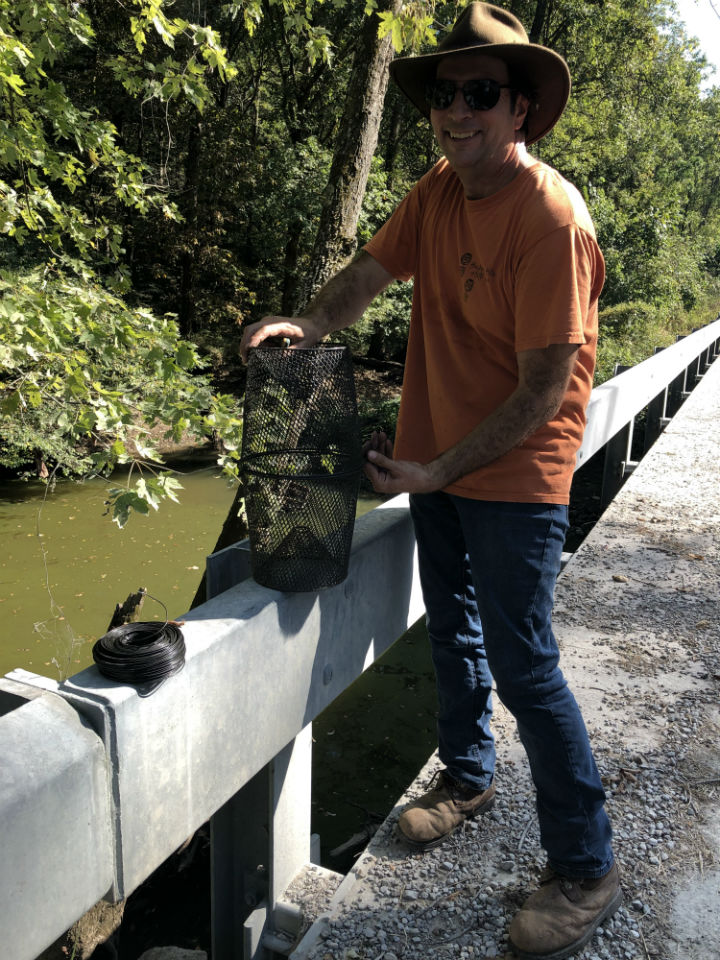
Charles C. Abbott, a pioneer ichthyologist, is credited with giving the Pirate Perch its common name, after observing that a specimen he kept in an aquarium ate only other fish.
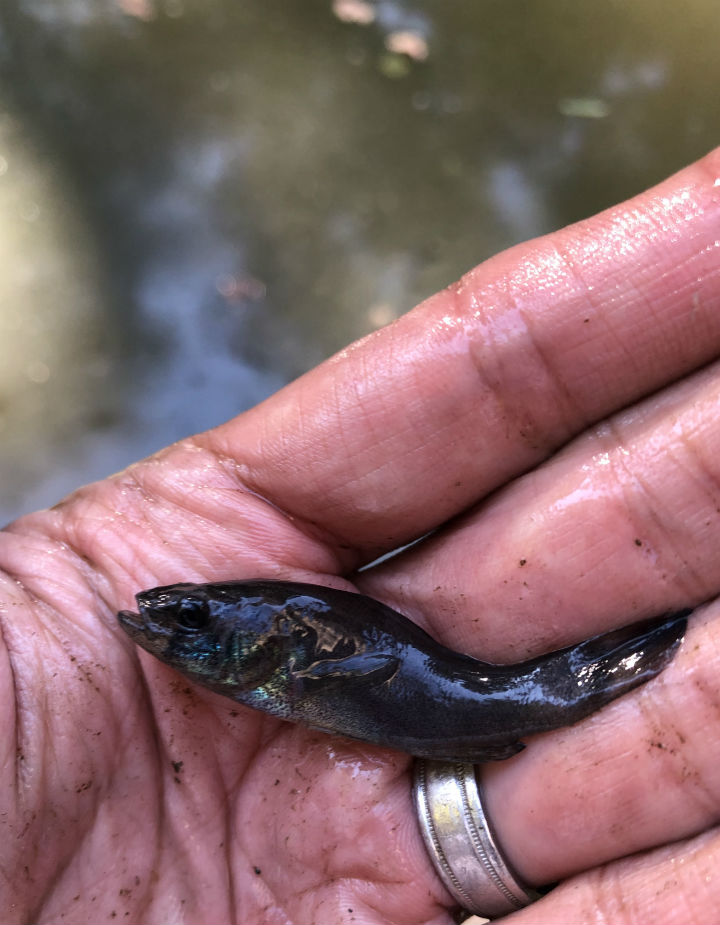
A neat looking Spotted Salamander. Visually striking, these eye-catching salamanders are grayish-black with and usually have two irregular rows of yellow or orange spots from head to tail. Adults range from 6 to 9 inches in length.
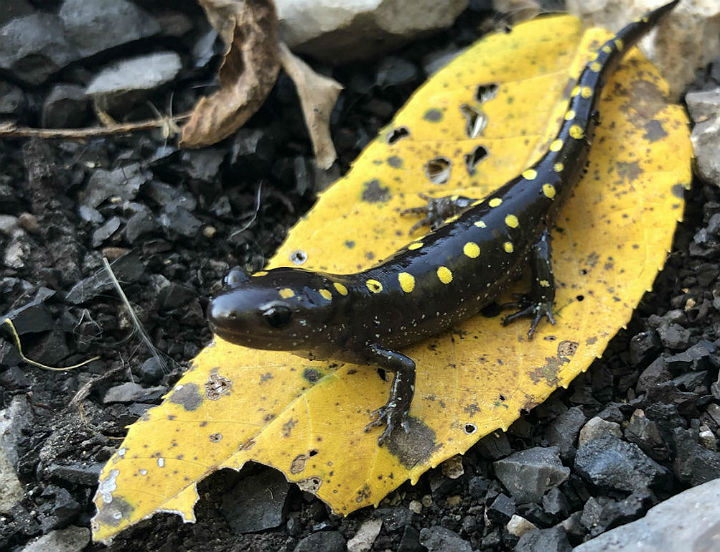
One of the minnow traps contained three Crayfish when I checked it the following morning.
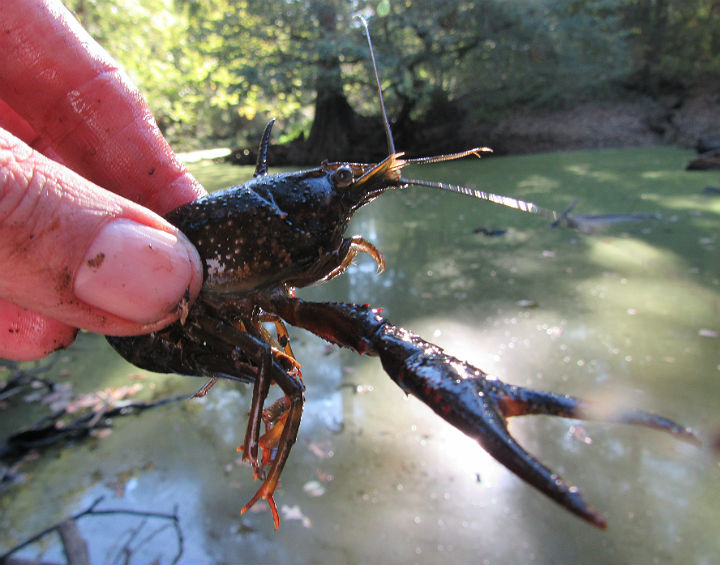
Green Sunfish tend to spend their time hiding around rocks, submerged logs, plants and other objects that provide cover.
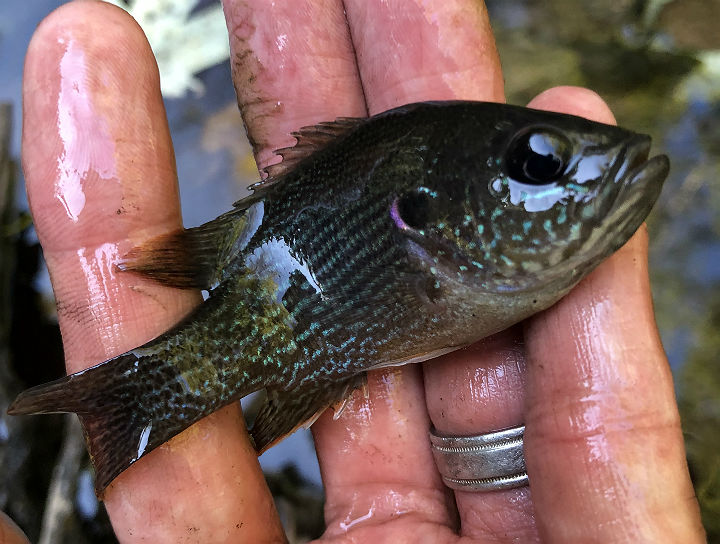
An orange-tinted Midland Water Snake from Johnson County. This reptile can be found in and around lakes, ponds, creeks, rivers and even in drainage ditches.
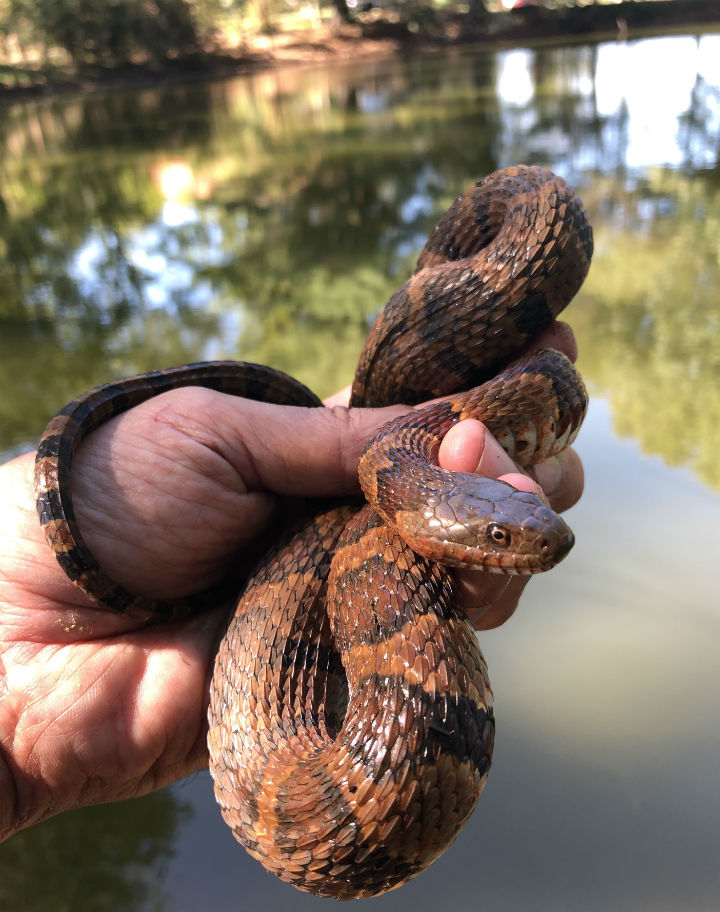
A Sweetheart Underwing Moth well camoflauged on a tree in a forest that I hiked through.
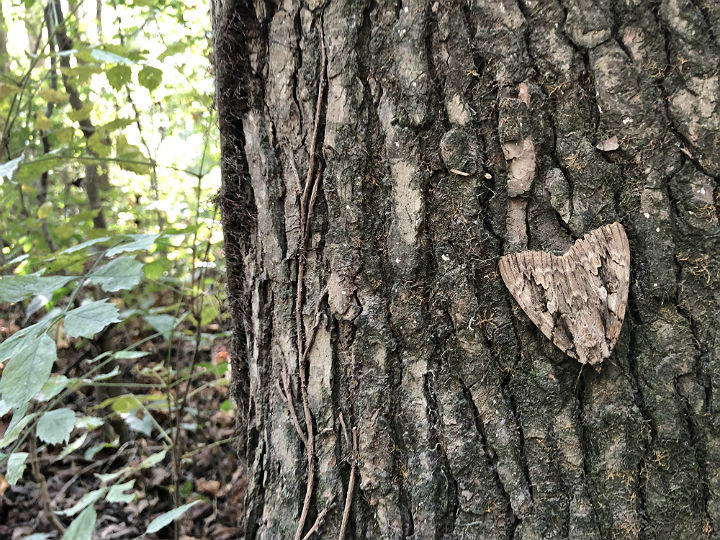
The Warmouth is also known as Molly, Redeye, Goggle-eye, Red-eyed Bream, Stump Knocker, Shell Cracker and Strawberry Perch.
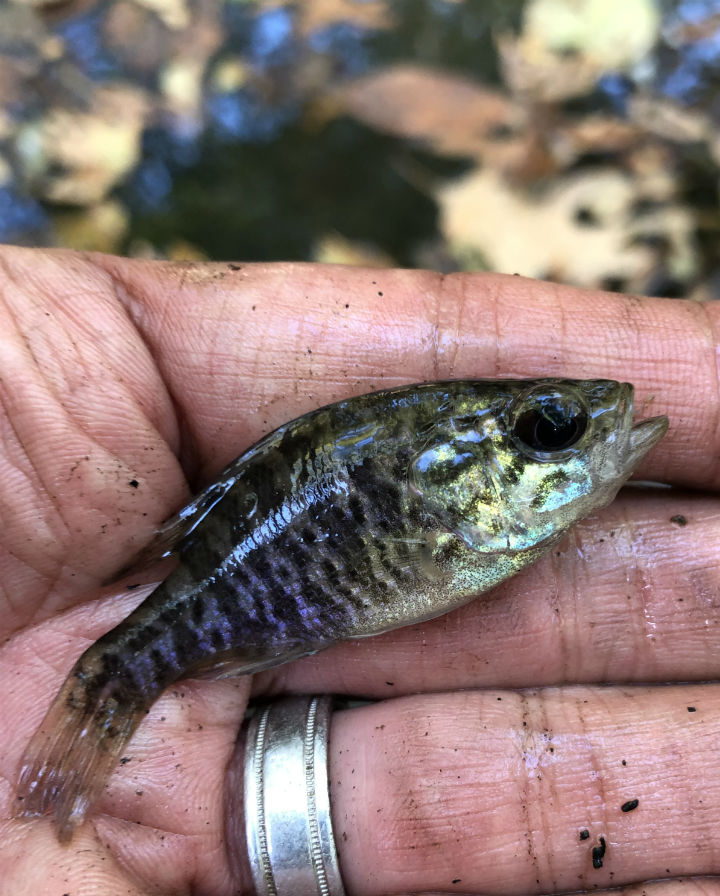
After checking the minnow traps, I headed back over to Snake Road.
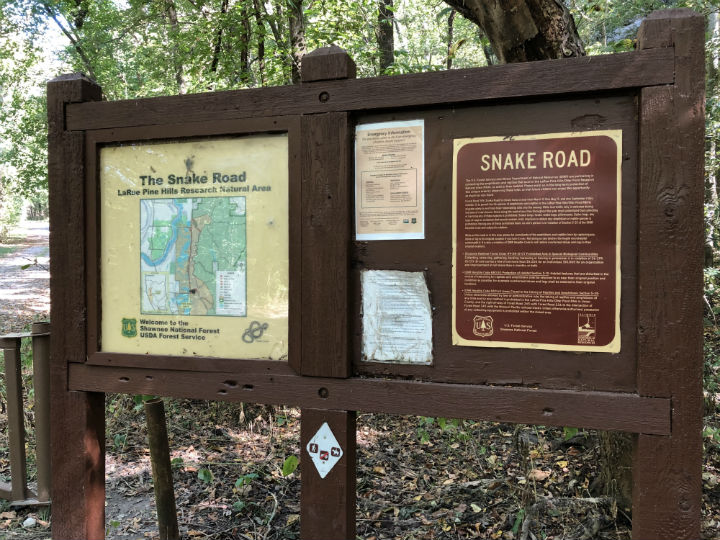
The only Rat Snake that I saw on the trip was this nicely patterned juvenile that probably hatched several weeks ago.
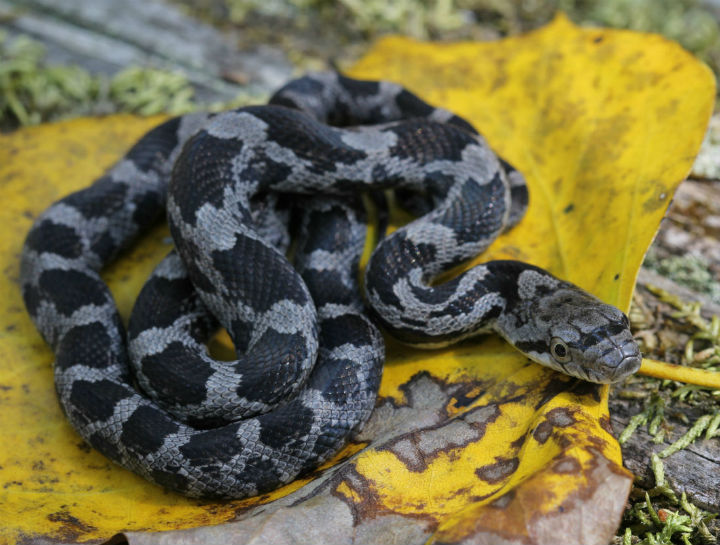
The Blanchard's Cricket Frog is usually found in the open sandy or muddy areas around streams and ponds. This species is usually only about an inch long.
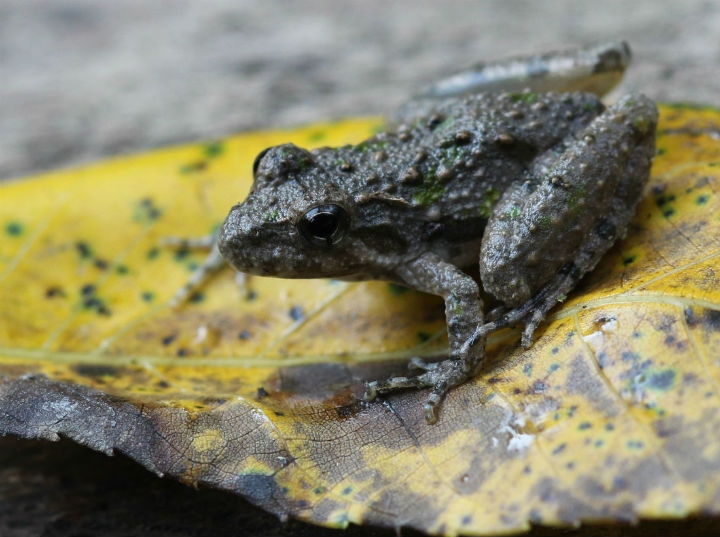
Rough Green Snakes are slender and elegant. They feed mainly on insects and spiders and are particularly fond of caterpillars. When captured, they never bite and are usually very gentle when held.
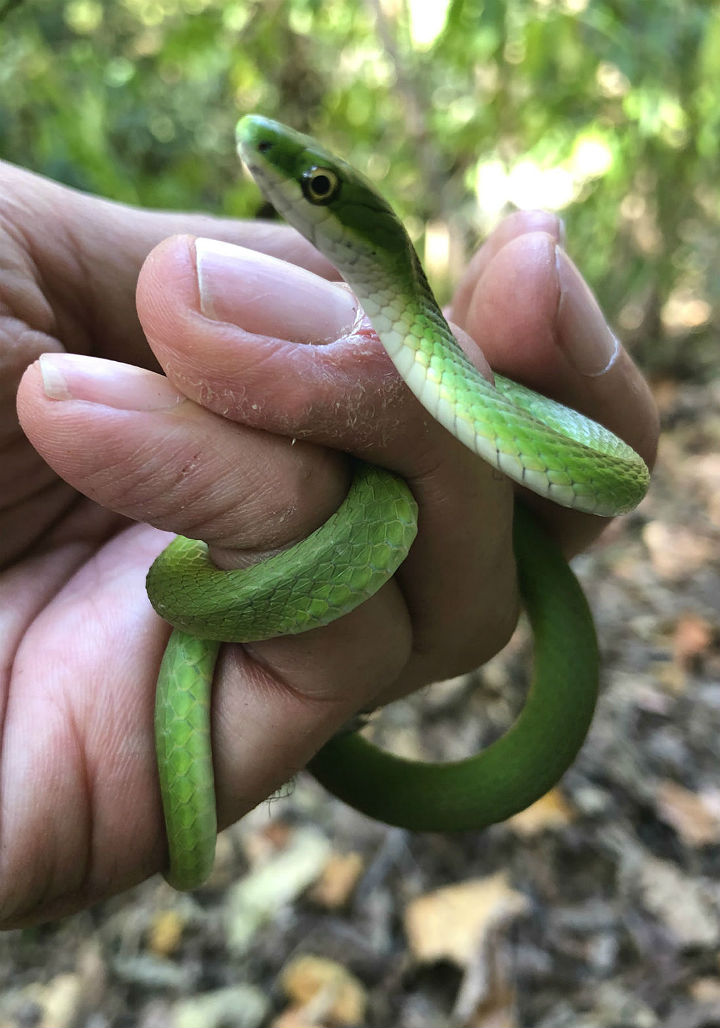
Although serpents are the "name of the game" on Snake Road, several types of large beetles can be encountered there as well. The Blue-margined Ground Beetle is large, extra-robust, flightless, and features a huge head and jaws.
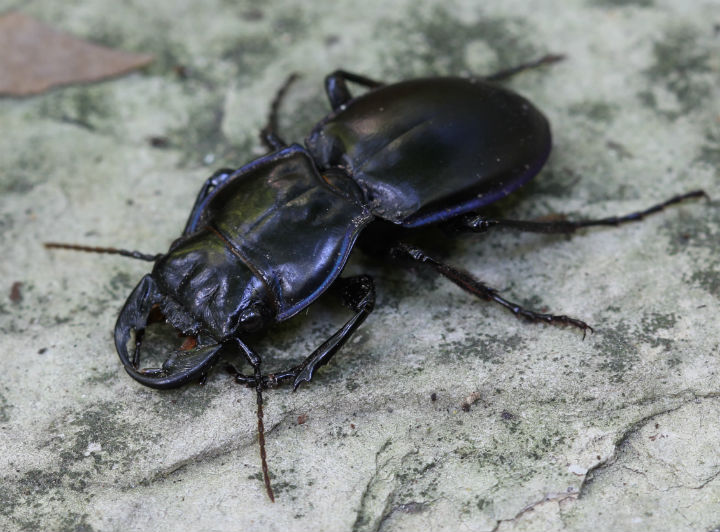
The Fiery Searcher is one of the largest and most colorful ground beetles (and they bite). Both larvae and adults eat caterpillars. This beetle's nickname is the "Caterpillar Hunter."
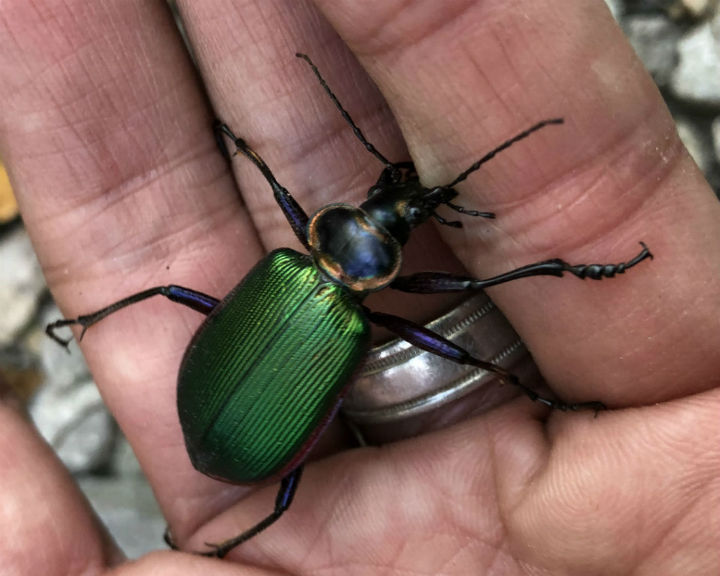
Unlike many insects, Bess Beetles take care of their young. Adults prepare decaying wood for the larvae by chewing and mixing it with saliva.
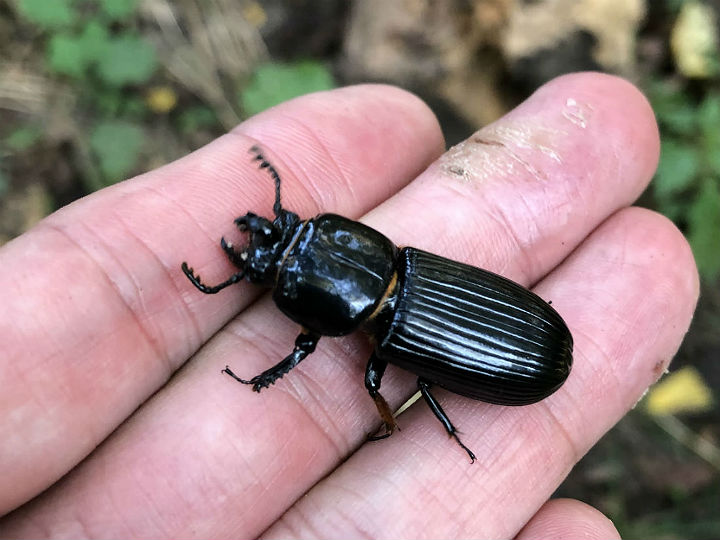
Click here to see Part 4
|